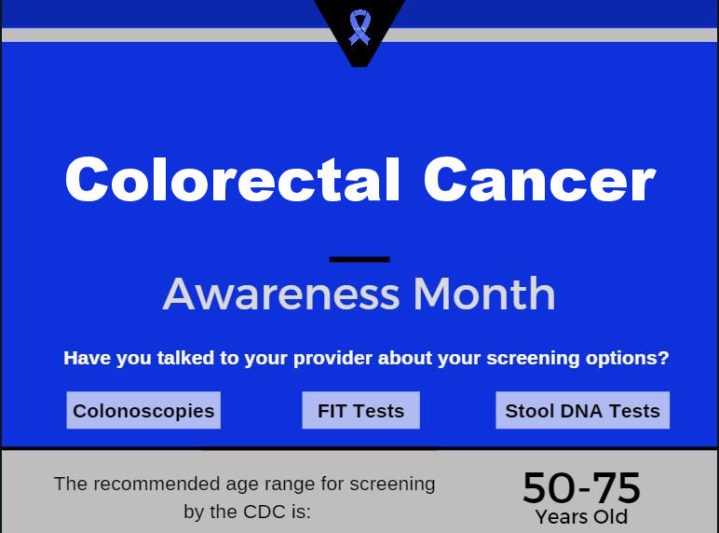Can Colorectal Cancer Be Prevented?
There’s no sure way to prevent colorectal cancer. But there are things you can do that might help lower your risk, such as changing the risk factors that you can control.
Colorectal cancer screening
Screening is the process of looking for cancer or pre-cancer in people who have no symptoms of the disease. Regular colorectal cancer screening is one of the most powerful weapons for preventing colorectal cancer.
From the time the first abnormal cells start to grow into polyps, it usually takes about 10 to 15 years for them to develop into colorectal cancer. With regular screening, most polyps can be found and removed before they have the chance to turn into cancer. Screening can also find colorectal cancer early, when it’s small and easier to treat.
If you’re age 50 or older, you should start getting screened for colorectal cancer. Several types of tests can be used. Talk to your health care provider about which ones might be good options for you. No matter which test you choose, the most important thing is to get tested.
Body weight, physical activity, and diet
You might be able to lower your risk of colorectal cancer by managing some of the risk factors that you can control, like diet and physical activity.
Weight: Being overweight or obese increases the risk of colorectal cancer in both men and women, but the link seems to be stronger in men. Having more belly fat (that is, a larger waistline) has also been linked to colorectal cancer. Staying at a healthy weight and avoiding weight gain around the midsection may help lower your risk.
Physical activity: Increasing your level of activity lowers your risk of colorectal cancer and polyps. Regular moderate activity (doing things that make you breathe as hard as you would during a brisk walk) lowers the risk, but vigorous activity might have an even greater benefit. Get at least 150 minutes of moderate intensity or 75 minutes of vigorous intensity activity each week (or a combination of these), preferably spread throughout the week. Increasing the intensity and amount of your physical activity may help reduce your risk.
Diet: Overall, diets that are high in vegetables, fruits, and whole grains (and low in red and processed meats) have been linked with lower colorectal cancer risk, although it’s not exactly clear which factors are important. The suggested goal is 2 ½ cups of vegetables and fruits a day. Many studies have found a link between red meats (beef, pork, and lamb) or processed meats (such as hot dogs, sausage, and lunch meats) and increased colorectal cancer risk. Limiting red and processed meats and eating more vegetables and fruits may help lower your risk.
In recent years, some large studies have suggested that fiber in the diet, especially from whole grains, may lower colorectal cancer risk. Research in this area is still under way.
Alcohol: Several studies have found a higher risk of colorectal cancer with increased alcohol intake, especially among men. Limiting alcohol to 1 drink a day for women and 2 drinks a day for men at most would be a good plan. Avoiding excess alcohol may help reduce your risk.
For more about diet and physical activity, see the American Cancer Society Guidelines on Nutrition and Physical Activity for Cancer Prevention.
Not smoking
Long-term smoking is linked to an increased risk of colorectal cancer, as well as many other cancers and health problems. Quitting smoking may help lower you risk of colorectal cancer and many other types of cancer, too. If you smoke and would like help quitting, call the American Cancer Society at 1-800-227-2345.
Current recommendations from the American Cancer Society

